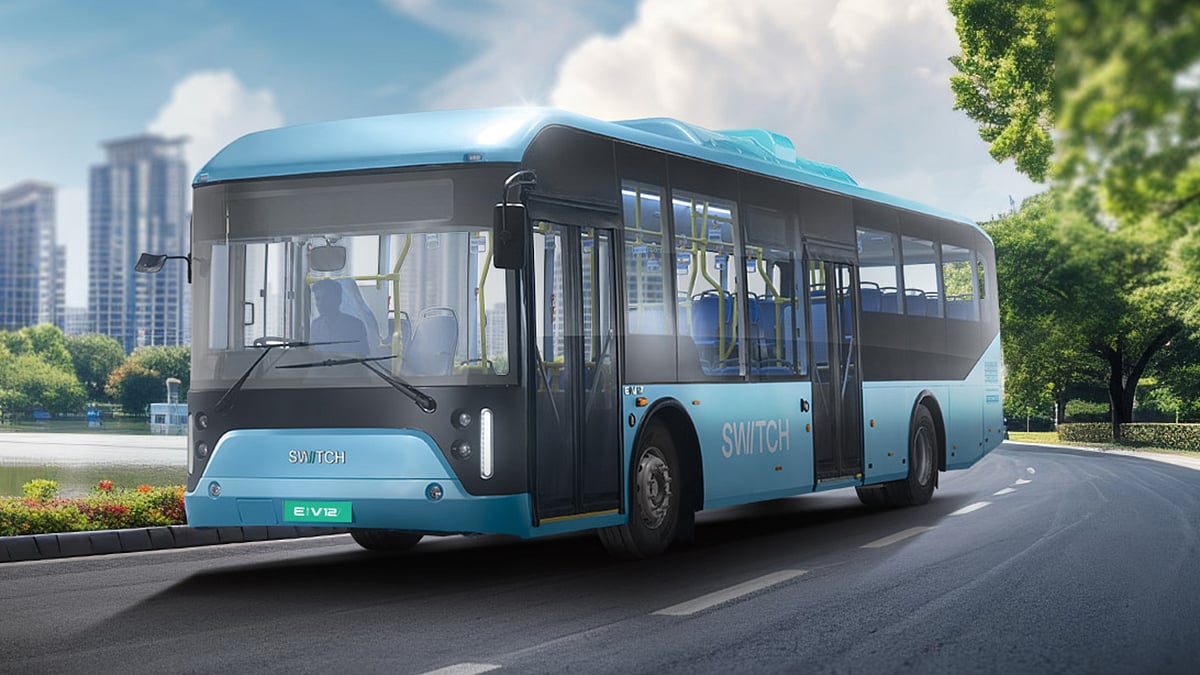Shares of Ashok Leyland experienced a notable decline, dropping by 4.56% to reach ₹205.17 per share, marking its lowest point since March 19. This downturn comes amid the company’s announcement regarding a potential halt in manufacturing operations at its electric vehicle (EV) subsidiary, Switch UK. While this may seem concerning at first glance, analysts are interpreting it as a strategic decision that could benefit Ashok Leyland’s overall trajectory.
Consultation for Operational Changes
Ashok Leyland Ltd. has begun discussions with employees that could lead to the cessation of operations at its UK facility, which primarily focuses on electric buses. This move has prompted positive reactions from industry analysts who view the shift as a necessary step to realign business efforts in a challenging market.
- UK Operations Underperforming: The electric bus sector in the UK has not delivered the anticipated results, leading to significant losses.
- Projected Losses: For financial year 2024, the company reported a loss of around ₹460 crore, with expectations of an additional £22 million loss in financial year 2025, as per insights from Morgan Stanley.
Analysts’ Perspectives
Given the current landscape of the EV bus market in the UK, both Nomura and Morgan Stanley believe that discontinuing operations at the UK facility is a prudent choice. They argue that this decision will help the company cut its losses effectively.
- BofA Analysis: The brokerage firm also indicates that the shutdown will not result in any impairment risk for Ashok Leyland, suggesting that positive developments in India will compensate for any losses incurred in the UK.
Cash Flow and Operational Efficiency
One of the primary advantages of this strategic pivot is the potential reduction in cash burn. By winding down operations in the UK, Ashok Leyland not only curtails ongoing financial losses but also positions itself for operational efficiencies and economies of scale in its core market—India.
- Morgan Stanley’s View: The firm views this transition favorably, anticipating that it will enhance cash flow and minimize operational inefficiencies.
Bright Prospects for Indian EV Market
The company’s Indian electric vehicle initiative, Switch India, is expected to be a significant catalyst for growth. Both Nomura and BofA are optimistic about the future of Ashok Leyland’s EV business in India, forecasting that it will soon reach EBITDA breakeven. The burgeoning demand for electric vehicles in India, coupled with governmental support for electrification in commercial transport, positions Ashok Leyland favorably for future successes.
Target Prices and Market Sentiment
While Macquarie maintains a Neutral rating with a target price of ₹234, expressing concerns about moderating volumes in the Medium and Heavy Commercial Vehicle (MHCV) segment, it acknowledges the restructuring of UK operations as a short-term benefit for sentiment and cash flow.
Conversely, Morgan Stanley and BofA remain bullish, sustaining their Buy ratings and target prices of ₹284 and ₹260, respectively.
Current Share Performance
As of 9:36 a.m., Ashok Leyland’s shares were trading at ₹210.87, reflecting a 1.91% decline after reaching their lowest level at ₹205.17. In contrast, the broader NSE Nifty 50 Index showed a modest gain of 0.12%.
In conclusion, while Ashok Leyland faces challenges in its UK operations, the strategic shift towards consolidating its efforts in India could pave the way for a more robust and efficient business model, aligning with the growing demand for electric vehicles in the region.











